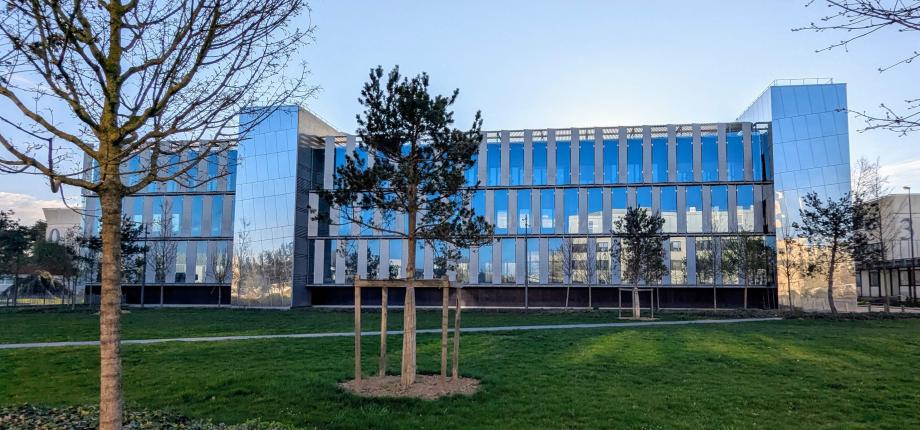The laboratory

BIOC, affiliated to CNRS Biology and the École Polytechnique, explores the fundamental mechanisms of life, from protein synthesis to cell signalling, via evolution and complex pathologies such as cancer and neurodegenerative diseases. Research at BIOC is strongly interfaced with other disciplines and with teaching at IP Paris. BIOC is organised into six teams that use and develop techniques and methods from biochemistry, molecular biology, cell biology, structural analysis, cryo-electron microscopy and computational biology.
GENERAL THEMES
The ‘RNA and ribosome homeostasis’ team (PI: S. Ferreira-Cerca) is committed to understanding the principles of RNA and ribosome homeostasis in the various domains of life. In addition, the team aims to develop archaea-inspired biosynthetic gene regulation circuits and ingenious bioreactor systems with a view to applications.
The ‘Translation Mechanisms’ team (PIs: E. Schmitt and Y. Mechulam) is interested in the molecular specificities of the ribosomal translation machinery in the three domains of life, using a variety of structural and biochemical methods. The team uses cryo-electron microscopy, notably at the CIMEX at the Ecole Polytechnique. The team also studies defects in the translation machinery at the molecular level and their implications for human health problems.
The ‘RNA and protein modifications’ team (PI: M. Graille) uses biochemical, structural and cell biology approaches to understand the role of post-transcriptional modifications of eukaryotic RNAs. The team aims to decipher their role in central biological processes, cell proliferation and organ development, and to describe the consequences of pathogenic mutations.
The ‘Synthetic Biosystems’ team (PI: P. Nghe) develops molecular design and high-throughput experimental screening methods. Computational approaches range from statistical learning to molecular dynamics. Experimental methods rely on DNA sequencing and compartmentalization. These approaches are applied to synthetic biology, from primordial reactions (origin of life, RNA world hypothesis) to the optimization of therapeutic strategies and bioproduction.
The ‘Cytoskeleton and cell morphogenesis’ team (PI: A. Gautreau) is seeking to understand the role of the actin cytoskeleton in the remodelling of cell membranes. Numerous multi-protein complexes are involved, such as the Arp2/3 molecular machine, which creates branched actin networks that generate a pushing force. The team is mainly interested in the regulation of Arp2/3 in normal cells and its deregulation in cancer. It is also studying the fundamental mechanisms of cellular transformation during cancer progression using the sequential introduction of pilot mutations into the genome of normal cells.
The ‘Signalling and neurodegenerative diseases’ team (PI: B. Schneider) is seeking to identify signalling receptors and effectors whose deregulation by amyloid proteins contributes to the death of neurons in prion and related diseases, such as Alzheimer's disease and, more recently, Charcot's disease. The team is also studying how nanopollutants (nanoparticles, nanoplastics) present in our environment compromise neuron homeostasis and represent risk factors for Alzheimer's disease. The signalling effectors deregulated by amyloid/nanopollutant proteins are potential therapeutic targets that can be acted upon to halt neurodegeneration.
Disciplines - Methodologies
- Molecular and structural biology (X-crystallography and cryoEM)
- Biochemistry of proteins and nucleic acids
- Physical biochemistry
- Bioinformatics
- Cell Biology
TEACHING
Organization and supervision of biology practical courses of the Biology Department of the Ecole polytechnique (6000 hours.students/year)
Master mention "Biology and Health" at IP Paris
78 thesis from 1975 to 2024


